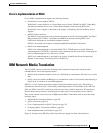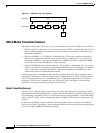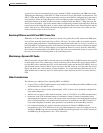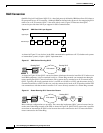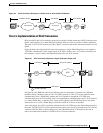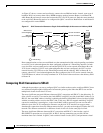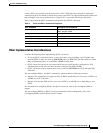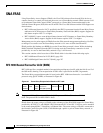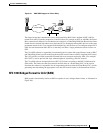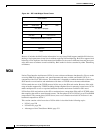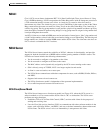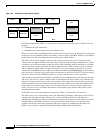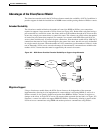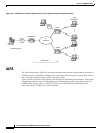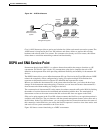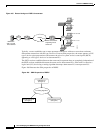
Overview of IBM Networking
SNA FRAS
BC-227
Cisco IOS Bridging and IBM Networking Configuration Guide
Figure 99 SNA BNN Support for Frame Relay
The frame format that communicates across the Frame Relay BNN link is defined in RFC 1490 for
routed SNA traffic. From the perspective of the SNA host (for example an NCP or AS/400), the Frame
Relay connection is defined as a switched resource similar to a Token Ring BNN link. Because the frame
format does not include link addresses to allow the NCP to distinguish among SNA devices on the same
permanent virtual circuit, Cisco supports SAP multiplexing, which allows you to configure unique LLC2
SAPs for each downstream SNA device so that they can share a single permanent virtual circuit to an
FEP.
The Cisco IOS software is responsible for terminating the local data-link control frames (such as SDLC
and Token Ring frames) and for modifying the data-link control frames to 802.2 compliant LLC frames.
The LLC provides a reliable connection-oriented link layer transport required by SNA. (For example,
802.2 LLC is used to provide link layer acknowledgment, sequencing, and flow control.)
The Cisco IOS software encapsulates these 802.2 LLC frames according to the RFC 1490 format for
SNA traffic. The frames are then forwarded to the SNA host on a Frame Relay PVC. In the reverse
direction, the software is responsible for de-encapsulating the data from the Frame Relay PVC, and for
generating and transmitting the appropriate local data link control frames to the downstream devices.
RFC 1490 Bridged Format for LLC2 (BAN)
BAN provides functionality similar to BNN except that it uses a bridged frame format, as illustrated in
Figure 100.
Token
Ring
Frame Relay
SDLC
NCP
S3218



